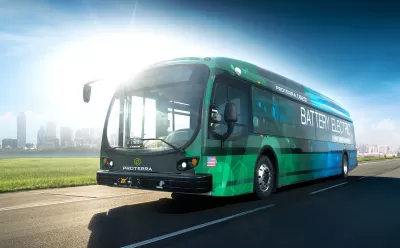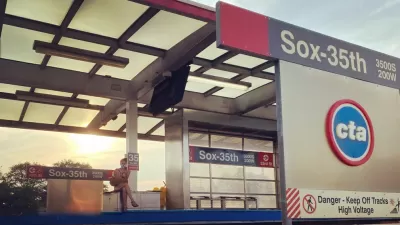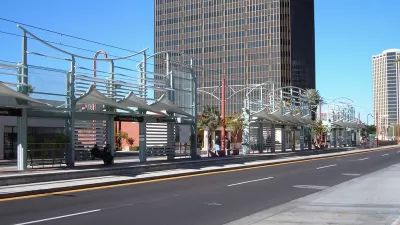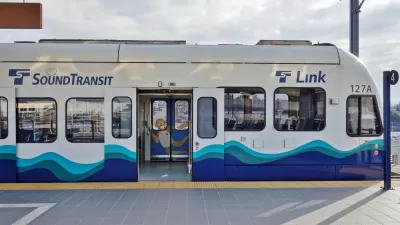Three projects are underway to optimize the efficiency and cost of public transit systems, thanks to government funding from the U.S. Department of Transportation (USDOT) and the U.S. Department of Energy (DOE).

Three organizations—the Massachusetts Institute of Technology (MIT), the Chattanooga Regional Transportation Authority (CARTA), and Utah State University (USU)—each received $1.75 million in federal funding to undertake projects to optimize energy and cost efficiency of public transportation systems with the use of artificial intelligence (AI).
"Researchers at MIT will look to develop a transit-centric Smart Mobility System to help agencies create short-term operating plans and adaptable real-time control strategies. CARTA will also develop a software platform using artificial intelligence (AI) to integrate fixed-route transportation with on-demand services and paratransit and determine where best to deploy electric buses. And USU aims to develop tools for planning and operations to help the large-scale electrification of bus fleets," reports Chris Teale.
According to the U.S. Department of Energy (DOE), a funder of the projects in collaboration with the U.S. Department of Transportation (USDOT), more efficiency and affordability in transportation systems will contribute to a larger goal of reduced carbon emissions in urban areas.
"The USU research project comes as more transit agencies look to electrify their bus fleets in a bid to cut emissions, but come up against issues like higher electricity costs from charging and the need to balance their schedules to ensure the vehicles have enough time to be charged without impacting service," Teale writes.
AI will play a key role in solving hypothetical scenarios in which electric fleets are in operation nationwide with such variables as inclement weather and route popularity.
FULL STORY: DOE, USDOT issue $5.25M in project grants to advance transit tech

Planetizen Federal Action Tracker
A weekly monitor of how Trump’s orders and actions are impacting planners and planning in America.

Maui's Vacation Rental Debate Turns Ugly
Verbal attacks, misinformation campaigns and fistfights plague a high-stakes debate to convert thousands of vacation rentals into long-term housing.

Restaurant Patios Were a Pandemic Win — Why Were They so Hard to Keep?
Social distancing requirements and changes in travel patterns prompted cities to pilot new uses for street and sidewalk space. Then it got complicated.

In California Battle of Housing vs. Environment, Housing Just Won
A new state law significantly limits the power of CEQA, an environmental review law that served as a powerful tool for blocking new development.

Boulder Eliminates Parking Minimums Citywide
Officials estimate the cost of building a single underground parking space at up to $100,000.

Orange County, Florida Adopts Largest US “Sprawl Repair” Code
The ‘Orange Code’ seeks to rectify decades of sprawl-inducing, car-oriented development.
Urban Design for Planners 1: Software Tools
This six-course series explores essential urban design concepts using open source software and equips planners with the tools they need to participate fully in the urban design process.
Planning for Universal Design
Learn the tools for implementing Universal Design in planning regulations.
Heyer Gruel & Associates PA
JM Goldson LLC
Custer County Colorado
City of Camden Redevelopment Agency
City of Astoria
Transportation Research & Education Center (TREC) at Portland State University
Jefferson Parish Government
Camden Redevelopment Agency
City of Claremont





























